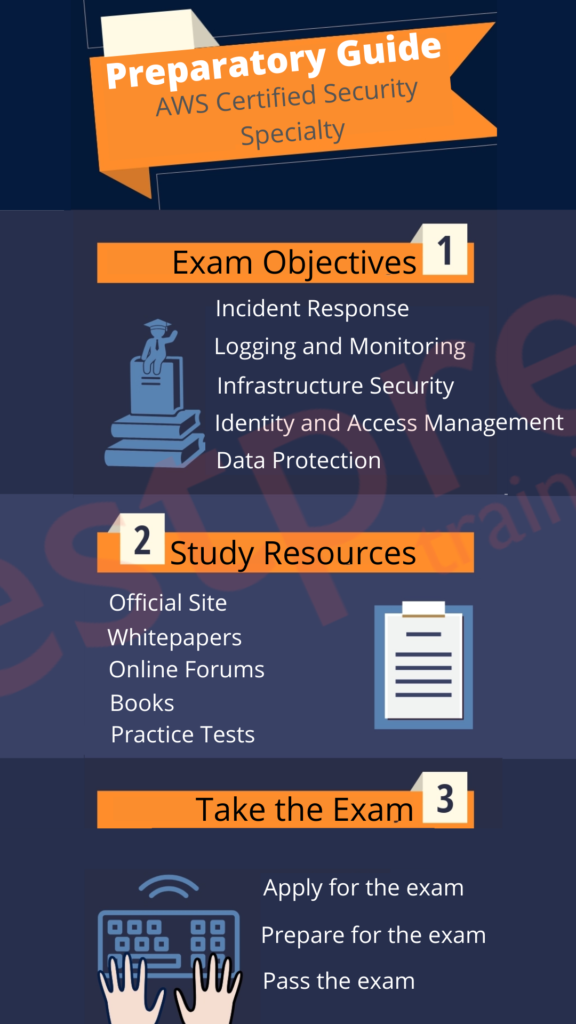Are you ready to level up your IT career? If so, it’s crucial to understand the differences between two of the most popular certifications in the field: CompTIA A+ and CompTIA Security+. These certifications hold immense value and can open doors to exciting job opportunities. But what exactly do they entail, and how do they differ from each other? In this blog post, we’ll delve into the world of CompTIA certifications and explore the distinctions between A+ and Security+. So, grab a cup of coffee, and let’s embark on this knowledge-filled journey together!
Importance of understanding the differences between CompTIA A+ and CompTIA Security+ certifications
In our fast-paced and ever-evolving digital landscape, staying up-to-date with the latest industry certifications is essential for IT professionals. Among the multitude of options available, two certifications that stand out are CompTIA A+ and CompTIA Security+. Understanding the differences between these certifications is of utmost importance for several reasons.
Gaining a clear understanding of what each certification entails allows professionals to make informed decisions about their career path. While both A+ and Security+ focus on different aspects of IT, they can complement each other in creating a well-rounded skill set.
Knowing the distinctions between these certifications helps individuals identify which one aligns better with their interests and goals. Are you passionate about troubleshooting hardware issues? Then A+ might be your best bet. Or do you have a keen interest in network security? In that case, Security+ could be more suitable for you.
Moreover, being aware of the differences between A+ and Security+ enables professionals to showcase their expertise accurately when applying for jobs or seeking promotions. Employers often look for specific skills or qualifications depending on the nature of the role they’re hiring for – having clarity about where your strengths lie puts you at an advantage during job interviews or performance evaluations.
Understanding how these certifications differ helps individuals plan their learning journey effectively. It allows them to allocate time and resources efficiently based on their career aspirations, ensuring they acquire the necessary knowledge and skills required by employers within their chosen field.
By taking the time to comprehend the nuances between CompTIA A+ and CompTIA Security+, aspiring IT professionals can navigate through various career opportunities more effectively while building a strong foundation in areas relevant to their desired roles. So let’s dive deeper into what each certification encompasses!
What is CompTIA A+ certification?
CompTIA A+ certification is a widely recognized credential in the IT industry. It validates the foundational skills and knowledge required for entry-level IT professionals. This certification covers various aspects of computer hardware, software, networking, and troubleshooting.
To earn the CompTIA A+ certification, candidates need to pass two exams: Core 1 (220-1001) and Core 2 (220-1002). These exams assess proficiency in areas such as installing and configuring operating systems, hardware troubleshooting, mobile device connectivity, network technologies, cloud computing concepts, virtualization techniques, security fundamentals, and more.
The CompTIA A+ certification serves as a solid starting point for individuals seeking to launch their careers in IT support or technical roles. It equips them with essential skills needed to work with different operating systems like Windows®, macOS®, Linux®, iOS®, Android™ platforms.
With this certification under your belt, you can showcase your competence in handling various technology-related tasks efficiently. Whether it’s building custom computers or diagnosing and resolving software issues on desktops or mobile devices – CompTIA A+ certified professionals are well-equipped to handle these challenges effectively.
In addition to job opportunities across diverse industries globally – including corporations of all sizes and government organizations – achieving this certification also sets a strong foundation for further professional growth within the IT field.
What is CompTIA Security+ certification?
CompTIA Security+ certification is a globally recognized credential that validates the knowledge and skills required to secure computer systems, networks, and data. It is designed for IT professionals who are responsible for implementing and maintaining security measures in an organization.
This certification covers a wide range of topics including network security, compliance and operational security, threats and vulnerabilities, access control, cryptography, and much more. It equips individuals with the necessary expertise to identify potential risks and implement appropriate solutions to safeguard against them.
The CompTIA Security+ exam tests candidates’ understanding of various security concepts such as risk management, incident response, disaster recovery planning, and encryption techniques. By earning this certification, professionals demonstrate their ability to assess an organization’s security posture effectively.
Having a CompTIA Security+ certification not only enhances career prospects but also instills confidence in employers that you have the necessary skills to protect your valuable assets from cyber threats. It serves as proof of your proficiency in cybersecurity best practices.
In today’s digital world where cyberattacks are becoming increasingly sophisticated, organizations need skilled professionals who can protect their sensitive information from unauthorized access or breaches. By obtaining the CompTIA Security+ certification, you position yourself as a reliable expert capable of securing vital organizational resources.
Differences Between CompTIA A+ and CompTIA Security+ Certifications

When it comes to IT certifications, two popular options that often come up are CompTIA A+ and CompTIA Security+. While both certifications can boost your career in the tech industry, they have distinct differences that you should be aware of before making a decision.
Let’s talk about the focus of each certification. The CompTIA A+ certification primarily focuses on foundational knowledge and skills related to computer hardware and software. It covers areas like installation, configuration, troubleshooting, and maintenance. On the other hand, the CompTIA Security+ certification is specifically designed to validate your knowledge of cybersecurity concepts such as risk management, network security protocols, cryptography, and secure communication.
Another key difference lies in their target audience. The CompTIA A+ certification is suitable for individuals who want to pursue a career in IT support or help desk roles. It provides a broad understanding of various technologies used in organizations. In contrast, the CompTIA Security+ certification targets professionals interested in cybersecurity positions or those responsible for securing networks and systems from threats.
The level of difficulty also varies between these certifications.
Factors to consider when choosing between the certifications
When deciding between CompTIA A+ and CompTIA Security+ certifications, there are several important factors to consider.
Think about your career goals and aspirations. If you’re interested in working with computer hardware, troubleshooting issues, and providing technical support to users, then the CompTIA A+ certification may be a better fit for you. On the other hand, if your passion lies in cybersecurity and protecting networks from threats, then the CompTIA Security+ certification would be more suitable.
Next, consider your current skillset and experience level. The CompTIA A+ certification is an entry-level credential that covers foundational knowledge of IT concepts such as hardware installation, software troubleshooting, networking basics, and customer service skills. In contrast, the CompTIA Security+ certification assumes some prior experience in IT security or networking concepts.
Another factor to take into account is the job market demand for each certification. Both certifications are highly regarded in the industry; however, depending on the region you’re based in or the industries you’re targeting for employment opportunities; one may have more demand than the other.
Conclusion
Understanding the differences between CompTIA A+ and CompTIA Security+ certifications is crucial for individuals looking to pursue a career in IT. Both certifications offer unique skill sets and knowledge areas that are essential in today’s technology-driven world.
CompTIA A+ certification focuses on foundational IT skills, such as hardware and software troubleshooting, installation and configuration of operating systems, network connectivity issues, and customer service. It serves as a strong starting point for those who want to enter the field of IT support or work as a help desk technician.
On the other hand, CompTIA Security+ certification delves into cybersecurity principles and best practices. It covers topics such as network security concepts, threats and vulnerabilities identification, cryptography basics, secure network design principles, risk management techniques, incident response procedures, compliance regulations awareness, and much more. This certification is ideal for individuals aspiring to work in roles related to information security or system administration.
When choosing between these two certifications, it’s important to consider your interests and career goals. If you enjoy working with computer hardware/software troubleshooting or providing technical support services directly to end-users/clientele – then CompTIA A+ may be the right path for you.
However, if you have an inclination towards cybersecurity technologies or aspire to become an information security professional – then pursuing CompTIA Security+ would be a wise choice. Ultimately, both certifications hold value in their respective domains within the IT industry. It’s advisable to assess your personal strengths, interests, and long-term career objectives before making a decision. By doing so, you can ensure that you choose the certification that aligns with your aspirations and helps advance your professional journey effectively.

2 thoughts on “Understanding The Differences Between CompTIA A+ and CompTIA Security+ Certifications”